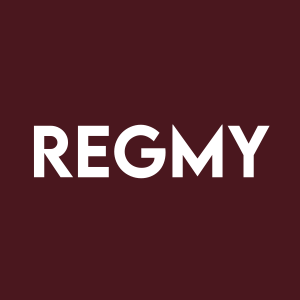RemeGen Receives Orphan Drug Designation from FDA for Telitacicept for the Treatment of Myasthenia Gravis
RemeGen Co., Ltd. announced that the U.S. FDA has granted orphan-drug designation for its novel fusion protein Telitacicept (RC18) to treat myasthenia gravis (MG), a rare autoimmune disease. This designation follows positive results from a Phase II clinical study in China. MG leads to fluctuating muscle weakness, necessitating effective treatments due to existing options having limited efficacy and side effects. RemeGen aims to address this unmet need globally through Telitacicept, which targets critical signaling molecules in B-cell development. The company strives to develop solutions for life-threatening conditions.
- FDA granted orphan-drug designation for Telitacicept, enhancing its market potential.
- Positive results from Phase II clinical study for Telitacicept in treating myasthenia gravis.
- Addresses significant unmet clinical needs in treating a rare disease.
- None.
Insights
Analyzing...
YANTAI, China, Oct. 12, 2022 /PRNewswire/ -- RemeGen Co., Ltd. ("RemeGen" or "the Company") (9995.HK, SHA: 688331), a commercial-stage biotechnology company, announced that the U.S. Food and Drug Administration (FDA) has granted orphan-drug designation (ODD) for its proprietary novel fusion protein Telitacicept (RC18) for the treatment of myasthenia gravis (MG).
Myasthenia gravis (MG) is a chronic autoimmune neuromuscular disease which causes patients to be prone to fluctuating muscle weakness. It can affect eye movements, swallowing, speech, and respiratory functions to varying degrees and can even be life-threatening in severe cases. The disease, although rare, is a long-term condition that currently is difficult to cure. In 2018, it was added to the National Rare Diseases Registry System of China, the first national list of rare diseases to be issued in the country. At present, the most common treatment options to alleviate symptoms for MG include cholinesterase inhibitors, glucocorticoids, immunosuppressants, intravenous immunoglobulin, plasma exchange, anti-CD20 monoclonal antibodies (mAbs), and thymectomy. These treatments can have certain side effects, while fast-acting treatments such as plasma replacement may have an impact on the immune system due to the removal of other macromolecules and poor accessibility. Therefore, a large unmet clinical need is currently being addressed by RemeGen.
"We're delighted that the FDA has granted ODD for the RemeGen created proprietary novel fusion protein Telitacicept," said Dr. Jianmin Fang, CEO and Chief Scientific Officer of RemeGen. "This is an important step in our quest to address the large unmet need on a global scale for myasthenia gravis, and follows on from our successful Phase II clinical study on patients in China earlier this year".
In the first quarter of this year, the company announced the completion of a Phase II clinical study of Telitacicept for the treatment of generalized myasthenia gravis (gMG) in Chinese patients, which showed positive results.
About RemeGen Co. Ltd.
Founded in 2008, RemeGen (9995.HK, SHA: 688331) is a leading biopharmaceutical company in China committed to providing solutions to the unmet clinical needs of patients suffering from life-threatening illnesses. RemeGen has research laboratories and offices throughout China and the United States. The company is committed to discovering, developing, and commercializing innovative and differentiated biologic drugs of significant clinical value in the key therapeutic areas of autoimmune, oncology, and ophthalmic diseases.
For more details, please visit: www.remegen.cn
About Telitacicept (RC18)
Telitacicept (RC18, Brand Name: 泰爱®) is a proprietary novel fusion protein from RemeGen to treat autoimmune diseases. It is constructed with the extracellular domain of the human transmembrane activator and calcium modulator and cyclophilin ligand interactor (TACI) receptor and the fragment crystallizable (Fc) domain of human immunoglobulin G (IgG). Telitacicept targets two cell-signaling molecules critical for B-lymphocyte development: B-cell lymphocyte stimulator (BLyS) and a proliferation inducing ligand (APRIL), which allows it to effectively reduce B-cell mediated autoimmune responses that are implicated in several autoimmune diseases. It was granted conditional marketing approval by China's National Medical Products Administration (NMPA) to treat systemic lupus erythematosus (SLE) in March 2021.
Forward-Looking Statements
This news release may contain certain forward-looking statements that are, by their nature, subject to significant risks and uncertainties. The words "anticipate", "believe", "estimate", "expect", "intend" and similar expressions, as they relate to RemeGen, are intended to identify certain of such forward-looking statements. RemeGen does not intend to update these forward-looking statements regularly.
These forward-looking statements are based on the existing beliefs, assumptions, expectations, estimates, projections and understandings of the management of RemeGen with respect to future events at the time these statements are made. These statements are not a guarantee of future developments and are subject to risks, uncertainties and other factors, some of which are beyond RemeGen's control and are difficult to predict. Consequently, actual results may differ materially from information contained in the forward-looking statements as a result of future changes or developments in our business, RemeGen's competitive environment and political, economic, legal and social conditions.
RemeGen, the Directors and the employees of RemeGen assume (a) no obligation to correct or update the forward-looking statements contained in this site; and (b) no liability in the event that any of the forward-looking statements does not materialize or turn out to be incorrect.
![]() View original content:https://www.prnewswire.com/news-releases/remegen-receives-orphan-drug-designation-from-fda-for-telitacicept-for-the-treatment-of-myasthenia-gravis-301646689.html
View original content:https://www.prnewswire.com/news-releases/remegen-receives-orphan-drug-designation-from-fda-for-telitacicept-for-the-treatment-of-myasthenia-gravis-301646689.html
SOURCE RemeGen Co., Ltd






